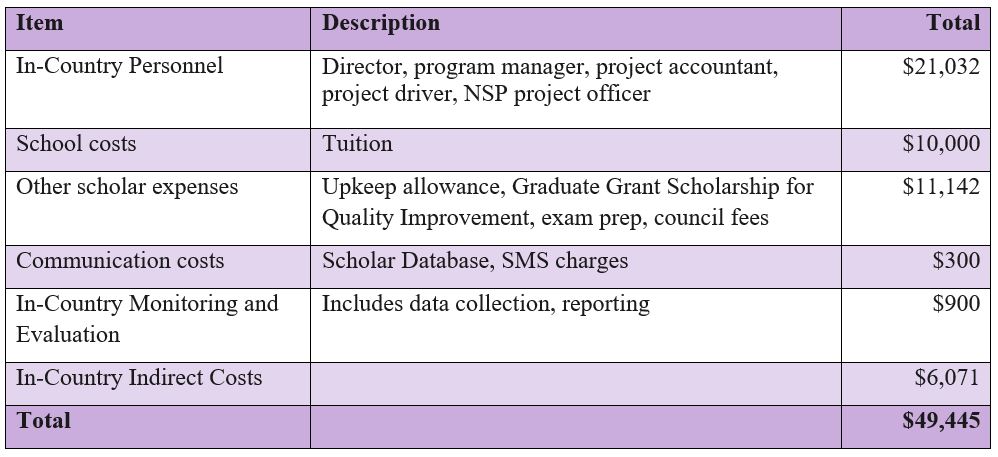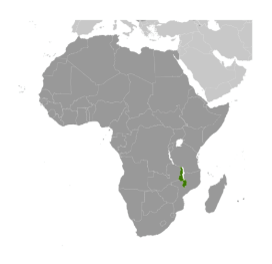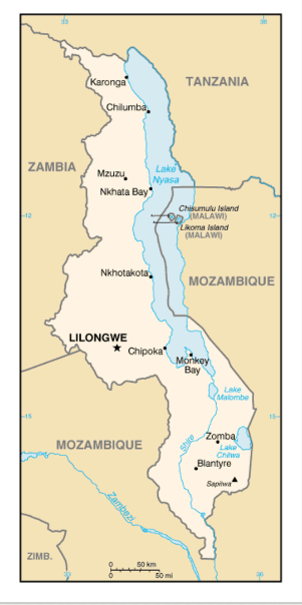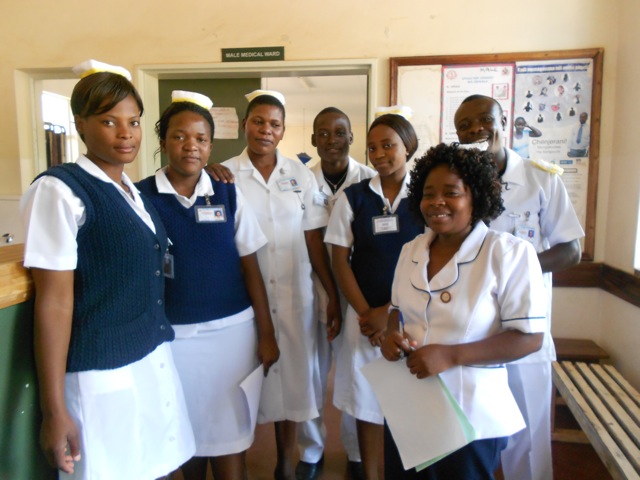
Mission
Together with the communities they serve, GAIA develops innovative and caring healthcare programs in resource-deprived regions in Africa, especially those most affected by HIV/AIDS, tuberculosis, and malaria. To ensure the broadest possible impact, GAIA rigorously tests its initiatives and promotes the replication of successful models.
Life Challenges of the Women Served
GAIA has focused its efforts in Malawi, as one of the countries hardest hit by HIV and most under-resourced to respond. The HIV/AIDS epidemic took its toll in every area of Malawian society, including thousands of healthcare workers who contracted HIV and succumbed to the disease, making a fragile healthcare system even more so.
Eighty-four percent of Malawians live in rural and remote areas. GAIA’s programs serve the most vulnerable villagers who live far off the healthcare grid without access to reliable disease prevention, treatment and care.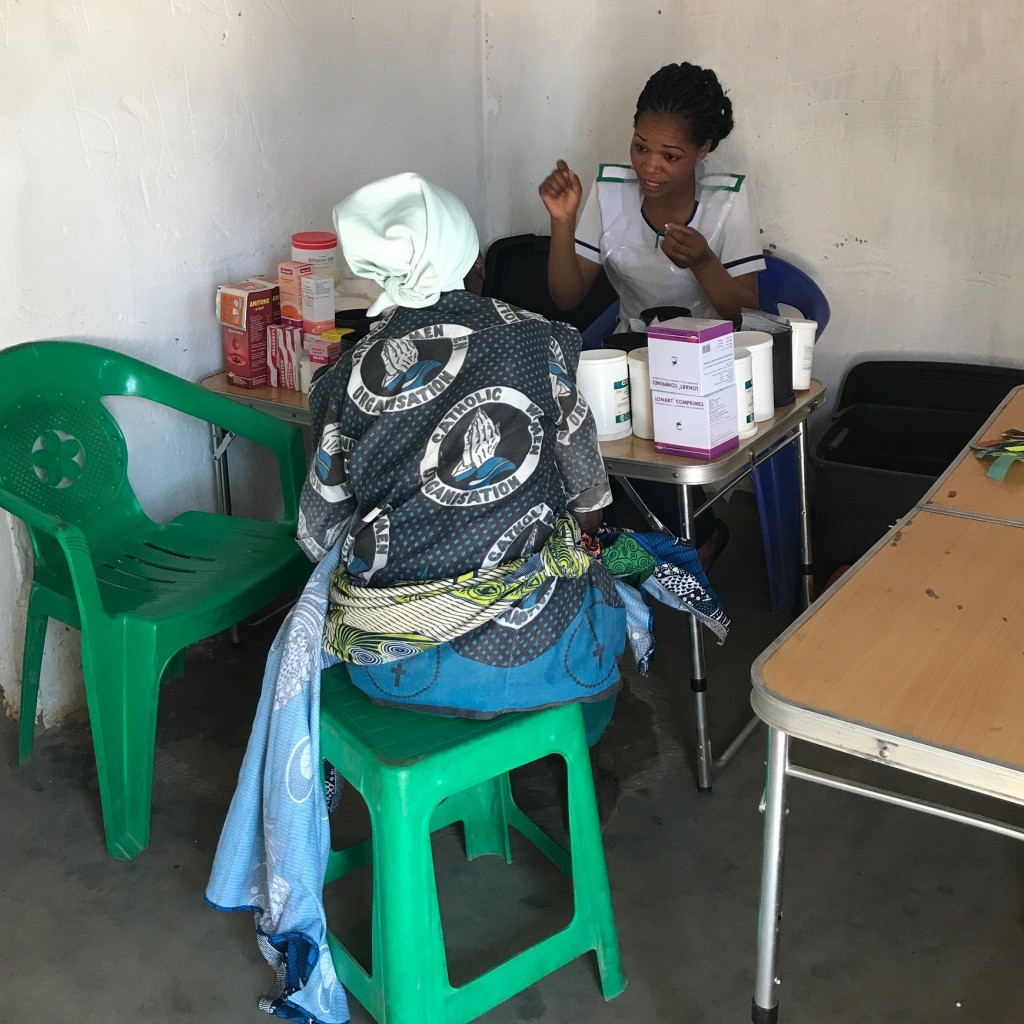
In rural Malawi, where GAIA works, one in six adults lives with HIV. Most of the population are subsistence farmers living on well below the $250 gross national income per capita, with low rates of school completion. Nationwide, 62 percent of those ages 15-24 have not completed primary education. Thirty percent of girls and 26 percent of boys ages 15-24 are illiterate, and 49 percent of women and 28 percent of men over age 15 are illiterate.
Only one in three girls in Malawi completes primary school, and the rate is even lower in the remote, rural villages. Less than 3 percent of girls attain some level of postsecondary education. With few prospects to earn a livelihood, poverty often drives girls and young women into age-disparate relationships and/or transactional sex. Half of the girls in Malawi are married by age 18, increasing their risk of domestic violence, early pregnancy and complications, and sexually transmitted diseases, including HIV – for which girls and young women ages 15-24 bear the highest burden of new infections: 56 percent in 2016.
The Project
Malawi has extreme shortages in its healthcare workforce. This shortage is especially evident in nursing, which provides most of the care in the country. Nationwide, the shortage is most acute in government facilities where 60 percent of nursing positions remain vacant. As many as 72 percent of nursing positions are vacant in the rural areas where the majority (84 percent) of the population lives. Malawi has three nurses per 10,000 people compared to 51 in South Africa and 100 in the US. The nursing shortage has been exacerbated in the past two decades by the loss of nurses to HIV/AIDS and to emigration of nurses to developed countries with better wages and working conditions.
The goal of GAIA’s Nursing Scholars Program (NSP) is two-fold: 1. to improve access to and quality of healthcare for Malawians, and 2. to provide disadvantaged young women with professional careers as nurses, lifting the women themselves, as well as their families and communities, out of the cycle of poverty.
NSP beneficiaries are young women, ages 17-24, from extremely disadvantaged backgrounds. These young women often have faced huge obstacles to pursue an education, including caring for and supporting younger siblings, heading orphaned households, and living in extreme poverty. Studies indicate the importance of recruiting and training healthcare workers from underserved remote and rural regions, as these professionals will be more likely to remain and deliver quality healthcare in rural settings.
Together with the Ministry of Health and nursing college partners, GAIA has developed a rigorous selection process to identify those who are motivated and in greatest need. Candidates must have a high-school diploma with good academic standing and have been accepted to one of four partner nursing schools. Students apply to GAIA’s program with a written application and short essay. A committee with representation from the university/college, the Ministry of Health, and GAIA assesses candidates’ need and selects finalists. Each year, more than 100 students apply for approximately 20-30 spots. GAIA Nursing Scholars are 81 percent female and 63 percent are single or double orphans. All come from extremely disadvantaged backgrounds and would be unable to attend nursing school if not for GAIA support.
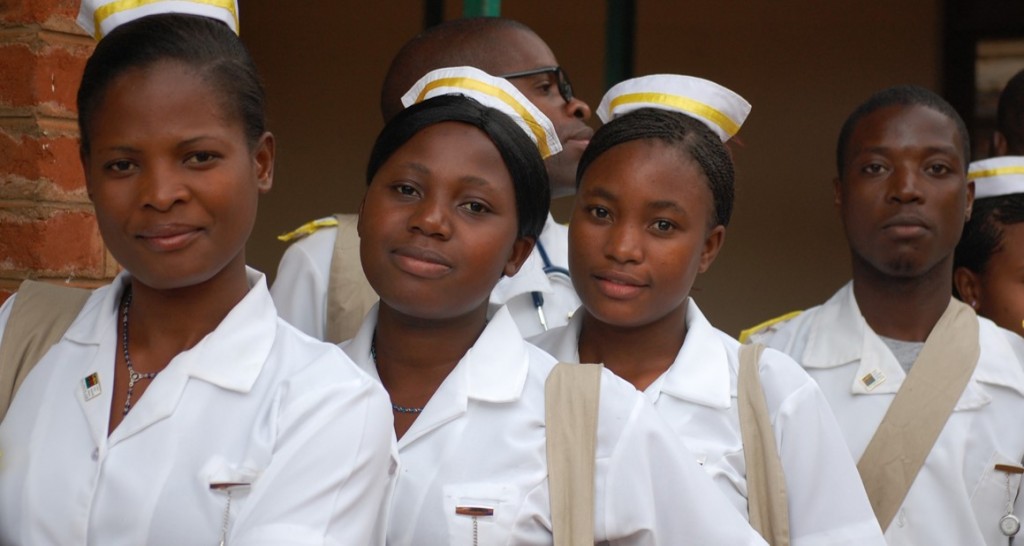 DFW’s grant will directly fund the fourth and final year of nursing school for 20 students in Kamuzu College of Nursing (10 in year one and 10 in year two). And because of GAIA’s unique agreement with students to work in the public sector for the same number of years they were sponsored in school (usually four), these young women will staff government facilities, often in rural areas, where they are most needed. GAIA’s project is need-based, provides wrap-around support including a stipend for supplies and living, follow-up to support academic success and the transition to work, an alumni network for ongoing support, and the requirement to work in the public sector.
DFW’s grant will directly fund the fourth and final year of nursing school for 20 students in Kamuzu College of Nursing (10 in year one and 10 in year two). And because of GAIA’s unique agreement with students to work in the public sector for the same number of years they were sponsored in school (usually four), these young women will staff government facilities, often in rural areas, where they are most needed. GAIA’s project is need-based, provides wrap-around support including a stipend for supplies and living, follow-up to support academic success and the transition to work, an alumni network for ongoing support, and the requirement to work in the public sector.
In Malawi, fourth year nursing students spend about four months doing supervised clinical rotations and providing much needed stop-gap support in hospitals and health centers in two of the most populous districts of Malawi. During these clinical rotations, each nurse will provide care for an estimated 500 individuals utilizing public sector health services, including labor and delivery maternity services. The total number of individuals indirectly served through this program are 10,000, of whom approximately 6,600 are female. Importantly, once trained, each nurse will serve an estimated 300,000 patients during the course of her career. World Bank studies show that women reinvest 90 percent of their income back into the family, educating, feeding, and keeping their children healthy compared to 30-40 percent for men. The offspring of educated women are healthier and better educated, therefore, this program has the potential to impact the next generation and break the cycle of poverty.
These new nurses are among Malawi’s most vulnerable young women who, through the program, will be supported to overcome entrenched social bias and achieve economic empowerment, gender equality, leadership potential, and fulfilling careers. Based on GAIA’s experience with more than 500 nurses supported through its program since 2005, these 20 nurses will use their incomes to support extended families and leverage their new positions to become role models for girls regarding what is possible with an education. In this way, each GAIA Scholar has a ripple effect, lifting the woman and her family out of extreme poverty, giving her children better health and a better future, inspiring the next generation of young women, and strengthening her nation’s health system.
Year 1 – Direct Beneficiaries: 10, Indirect Beneficiaries: 5,060
Year 2 – Direct Beneficiaries: 10, Indirect Beneficiaries: 5,060
UN Sustainable Development Goals
![]()
![]()
![]()
![]()
Questions for Discussion
- How do you think this project affects the cycle of poverty in Malawi?
- Do you think this project can reduce the prevalence of HIV/AIDS?
- How do you think this project can impact gender inequality?
How the Grant Will be Used
DFW’s grant of $49,445 over two years will cover project costs, school tuition, scholar expenses, and more.
Why We Love This Project/Organization
We love the Global AIDS Interfaith Alliance’s efforts in Malawi, as one of the countries hardest hit by HIV and most under-resourced to respond. The Nursing Scholarship Program offers disadvantaged young women professional careers as nurses, lifting the women themselves, as well as their families and communities, out of the cycle of poverty.
Evidence of Success
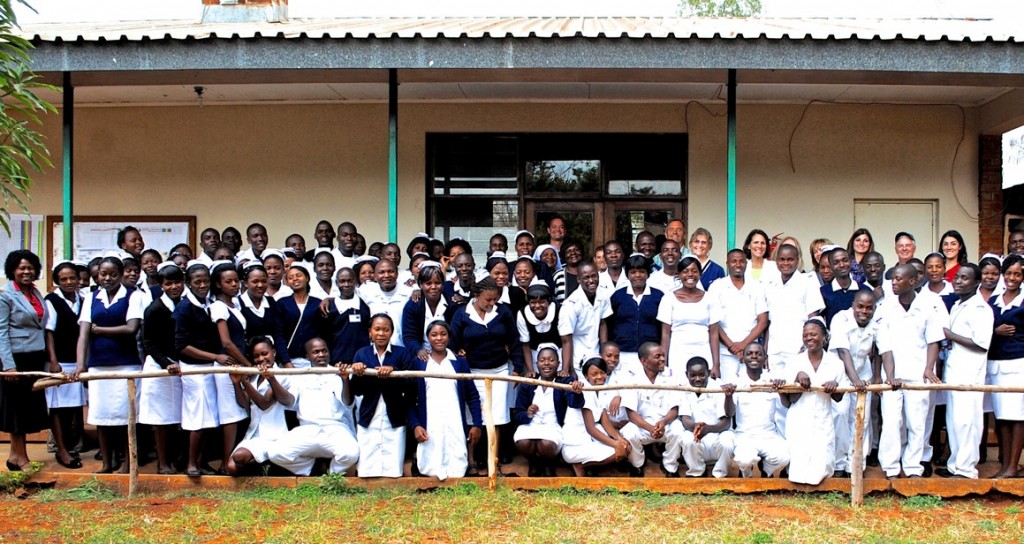 GAIA is registered as an international NGO in Malawi and has existing Memorandums of Understanding with the Malawi Ministry of Health and the District Health Office. In 2010,
GAIA is registered as an international NGO in Malawi and has existing Memorandums of Understanding with the Malawi Ministry of Health and the District Health Office. In 2010,
GAIA was awarded a $2.9 million, six-year USAID grant to expand its Nursing Scholars Program (NSP). GAIA’s NSP model was recognized in a 2015 Global Health: Science and Practice article for its follow-up component, which helps scholars overcome challenges in their studies and work sites to ensure graduation and retention in the public sector. Doctors without Borders, Partners in Health, and The ELMA Foundation have recognized GAIA’s NSP success in tracking and monitoring program impact.
Today, approximately 10 percent of registered nurses in Malawi are GAIA supported – 95 percent have fulfilled their commitment to work in the public sector and 99 percent have remained working in Malawi even after the four-year commitment. More than two-thirds report using their stipends or salaries to provide for younger siblings.
Voices of the Girls
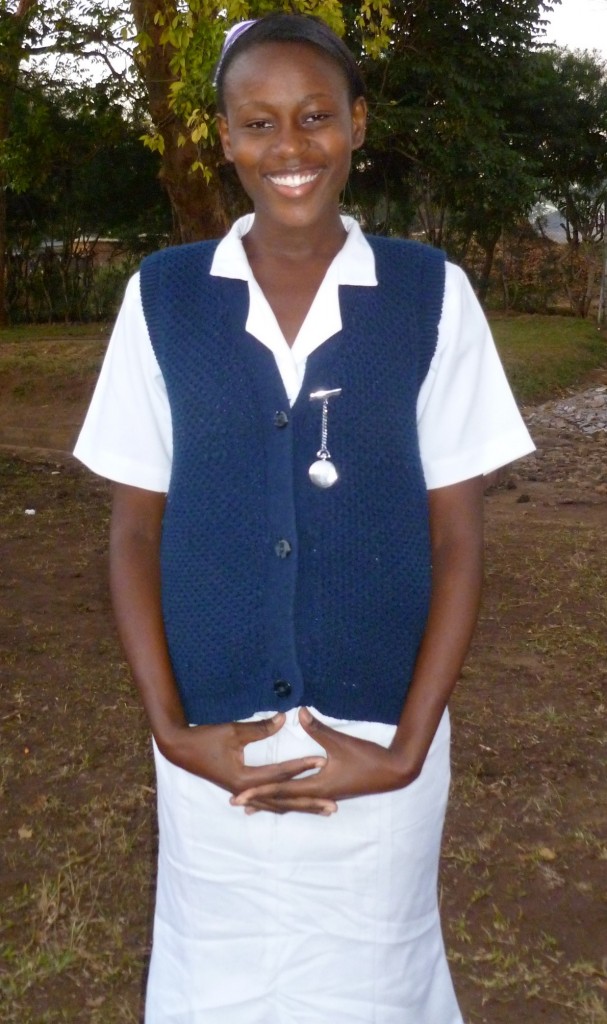 Charity Malizani was a double orphan at an early age and raised by her grandmother. Often hungry and very thin, she had teachers who helped her by giving her extra food. She did very well at primary school and was selected to attend secondary school. Her grandmother did not want her to go and urged her to marry. Charity persisted, and people from her church helped her with transport fees. She also took in laundry and did other odd jobs during the holidays to afford her school fees. Her grandmother continued to insist that she marry and on one of her holidays had arranged for a man “on a motorbike” (a sign of wealth) to meet her and insisted Charity marry him. She refused. When she came back to the house, she found her grandmother was using her notebooks with all her lecture notes from school as toilet paper in the latrine. But still Charity persisted and went back to school and passed her secondary school exams. Charity wanted to be a nurse and was thrilled when she was accepted at Kamuzu College of Nursing. She went to school not knowing how she would afford it, but she met with the dean of students and applied for the GAIA scholarship, which she received. Now a nurse, Charity reflects on a recent experience: “I was caring for a woman whose labor was progressing normally and the baby was about to present. I performed a pelvic check and discovered a prolapsed cord. I delivered the baby quickly, but the infant’s Apgar score (numeric indicator of newborn health) at minute one was only 2 – very ominous. I quickly resuscitated the baby and the second Apgar at five minutes was now 8 (out of 10) which is normal. The baby did well.”
Charity Malizani was a double orphan at an early age and raised by her grandmother. Often hungry and very thin, she had teachers who helped her by giving her extra food. She did very well at primary school and was selected to attend secondary school. Her grandmother did not want her to go and urged her to marry. Charity persisted, and people from her church helped her with transport fees. She also took in laundry and did other odd jobs during the holidays to afford her school fees. Her grandmother continued to insist that she marry and on one of her holidays had arranged for a man “on a motorbike” (a sign of wealth) to meet her and insisted Charity marry him. She refused. When she came back to the house, she found her grandmother was using her notebooks with all her lecture notes from school as toilet paper in the latrine. But still Charity persisted and went back to school and passed her secondary school exams. Charity wanted to be a nurse and was thrilled when she was accepted at Kamuzu College of Nursing. She went to school not knowing how she would afford it, but she met with the dean of students and applied for the GAIA scholarship, which she received. Now a nurse, Charity reflects on a recent experience: “I was caring for a woman whose labor was progressing normally and the baby was about to present. I performed a pelvic check and discovered a prolapsed cord. I delivered the baby quickly, but the infant’s Apgar score (numeric indicator of newborn health) at minute one was only 2 – very ominous. I quickly resuscitated the baby and the second Apgar at five minutes was now 8 (out of 10) which is normal. The baby did well.”
“Fortunately, I was included as one of GAIA’s scholars. This brought hope to me because I know that now I will learn without facing some financial problems and in future I will be able to help my poor family. Not only that but I will also serve the population as a nurse.”
- Rupakisho, Kamuzu College of Nursing
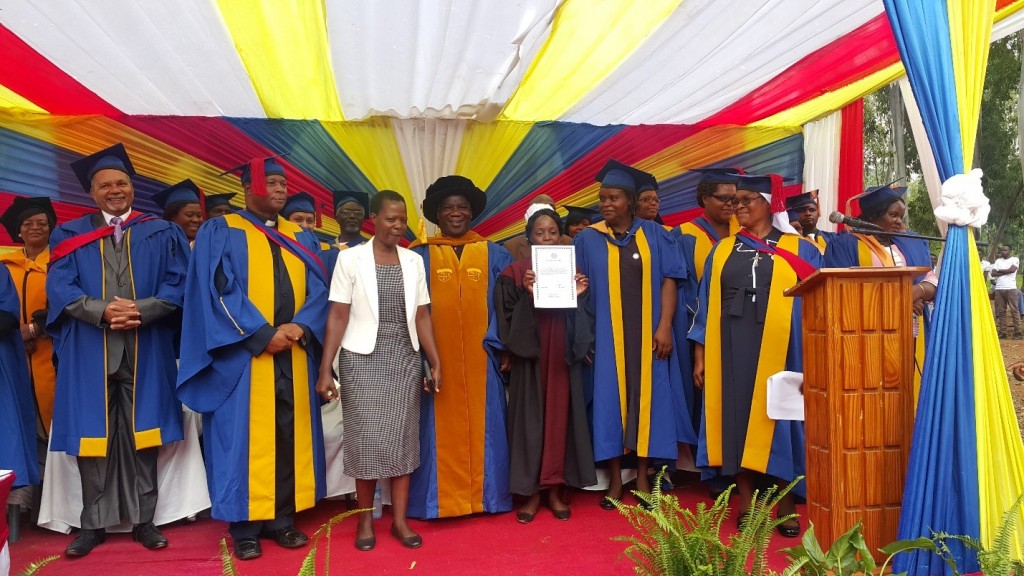 “My happiest moment started when I became a GAIA scholar.”
“My happiest moment started when I became a GAIA scholar.”
- Julita, Kamuzu College of Nursing
“I am so grateful that I was taken on scholarship. This will help me do my studies with no worries of how my parents will struggle financially and I promise to work extra hard.”
- Bessie, Kamuzu College of Nursing
Excerpted from a poem:
“There comes GAIA, lifting the dreams up, saving them from falling down, raising our dreams high, now we are in good hands, our future has been brightened, now we say thank you, for being the savior of the day, indeed you have made our lives better.”
- Loveness, Kamuzu College of Nursing
“I would like to share what GAIA has done for me. I lost my dad in 2006 and I stayed two years at home because of school fee problems. When I was selected to come to Kamuzu College of Nursing I was worried as to where I could get school fees from since my sister who was paying fees for me after my dad’s death could not afford to do that. She is a primary school teacher and gets a very little salary. After being chosen as a GAIA Scholar all my problems were attended to since I manage to buy stationery, groceries and I can even get fees from GAIA. I would like to thank GAIA for all these because without this scholarship I would have been at home by now.”
- Chikondi, Kamuzu College of Nursing
About the Organization
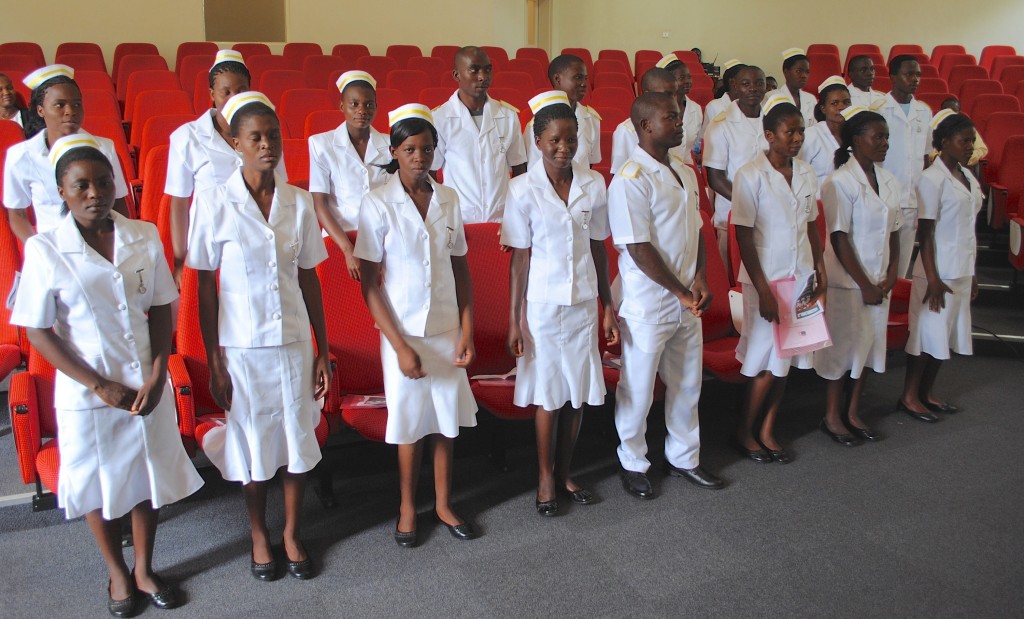 GAIA was founded in 2000 by Dr. William Rankin and Dr. Charles Wilson, Professor Emeritus, University of California, San Francisco, in response to the devastating HIV/AIDS epidemic in sub-Saharan Africa.
GAIA was founded in 2000 by Dr. William Rankin and Dr. Charles Wilson, Professor Emeritus, University of California, San Francisco, in response to the devastating HIV/AIDS epidemic in sub-Saharan Africa.
GAIA is a secular nonprofit that delivers innovative healthcare programs in resource-deprived regions in Africa, especially those most affected by HIV/AIDS, malaria and tuberculosis. GAIA’s programs seek to empower girls and women, emphasize prevention, and expand access. While completely secular, GAIA’s name recalls an early grassroots approach, incorporating leaders of all faiths as important community influencers and messengers on health topics. The grassroots legacy continues today, as GAIA’s programs are developed in-country based on the local context and focused on strengthening systems and developing capacity to real and sustainable change.
To date, GAIA’s NSP has trained more than 500 nurses who are deployed throughout the country, in 27 out of 28 districts nationwide. GAIA’s community programs and mobile health clinics operate in rural, remote regions in southern Malawi where access to health services is limited or nonexistent.
Where They Work
Malawi (population approximately 19 million) is located in Southern Africa, east of Zambia, west and north of Mozambique, in an area slightly smaller than the state of Pennsylvania. The median age of its population is 16.5 years. The birth rate is 41 births/1,000 population (2017 est.), with a population growth rate of 3.1 percent, ranking the country third when compared to other countries in the world. The mother’s mean age at first birth is 18.9 years, with a maternal mortality ratio of 634 deaths/100,000 live births (2015 est.). The infant mortality rate is 43.4 deaths/1,000 live births. One million people live with HIV/AIDS (2016 est.)
Tea and fish are popular features of Malawian cuisine. Sugar, coffee, corn, potatoes, sorghum, cattle and goats are also important components of the cuisine and economy. Lake Malawi is a source of fish. Nsima is a staple food made from ground corn and served with side dishes of meat, beans, and vegetables.
Twenty seven percent of the population is Protestant (including 17.7 percent the Church of Central Africa Presbyterian, 6.9 percent Seventh Day Adventist/Baptist, and 2.6 percent Anglican. Forty percent are other Christian and 12 percent are Muslim. The official language is English.
A Closer Look at the Global Aids Epidemic
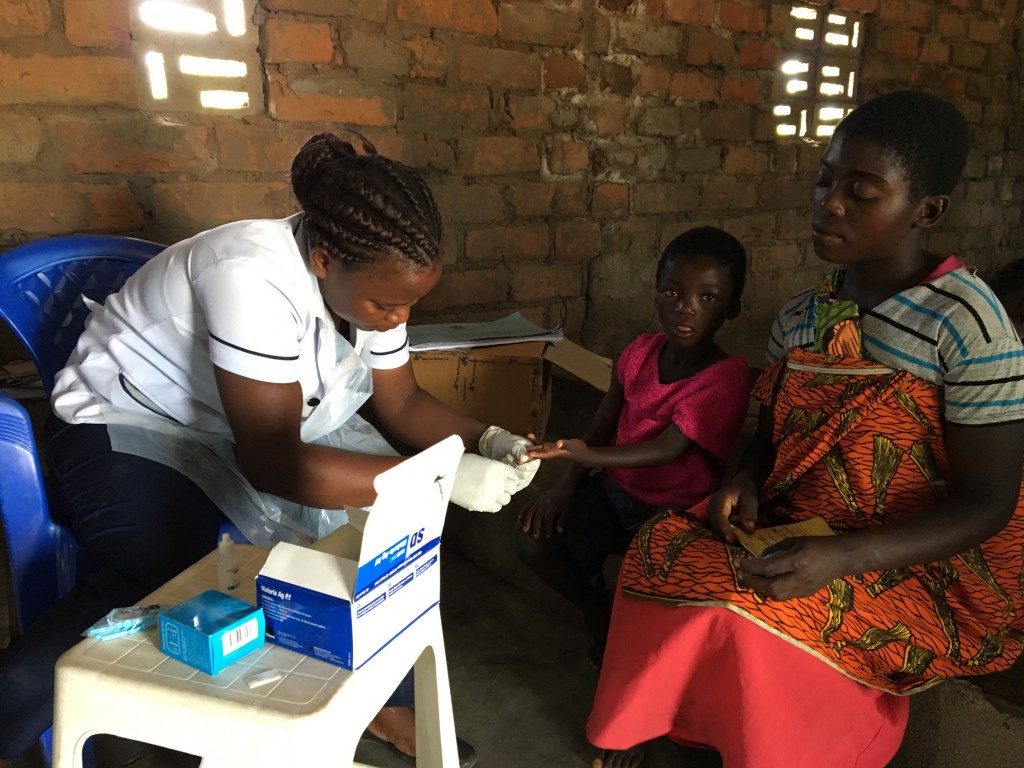 HIV, the virus that causes AIDS, continues to be one of the world’s most serious health and development challenges. In 2016:
HIV, the virus that causes AIDS, continues to be one of the world’s most serious health and development challenges. In 2016:
- 36.7 million people globally were living with HIV, including 2.1 million children under the age of 15,
- 8 million people became newly infected with HIV,
- 1 million people died from AIDS-related illnesses.
Since the start of the epidemic, 76.1 million people have become infected with HIV, and 35 million people have died from AIDS-related illnesses.
Progress has been made, however. Since 2010, new HIV infections among adults declined by an estimated 11 percent, and new HIV infections among children decreased by 47 percent. Twenty million people were accessing antiretroviral therapy in 2017. Unfortunately, currently only 60 percent of people with HIV know their status. The remaining 40 percent (more than 14 million people) still need to access HIV testing services.
Nurses are the backbone of the healthcare system in Malawi, providing approximately 80 percent of clinical care. Malawi has a historic opportunity to break the AIDS epidemic by achieving UNAIDS’ 90-90-90 targets by 2020 (90 percent of people living with HIV know their status; 90 percent of those are on treatment; and 90 percent of those are adherent, becoming non-infectious). Training more nurses is vital to Malawi’s ability to achieve these targets and to improve the health of its population.
Source Materials

